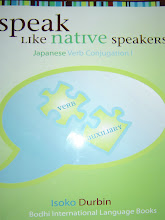わたしが にほんに いたときは そんざいしなかった にほんご
watashiga nihonni itatokiwa sonzaishinakatta nihongo
Wow, it is long. I can devide this into 3.
1. 私が日本にいた時は
You know "は" is the topi marker. Just in this phrase, the subject is 時 (toki) or "the time." What time is it? It's 私が日本にいた時 or "the time I was in Japan." 私が日本にいた(I was in Japan) modifys the time 時. So it is a phrase "when I was in Japan."
2. 存在しなかった
This part is the verb of "私が日本にいた時は". 存在する means "to exist" and 存在しなかった is the past negative of 存在する. So 私が日本にいた時は、存在しなかった is "When I was in Japan, (it) did not exist" which modifys the part 3, "日本語".
3. 日本語
Japanes langusge or word. This part is the conclusion of all here. I wanted to explain the "日本語". What kind of 日本語? It "did not exist." When did it not exist? "When I was in Japan." Got it?
Anyway, what I wanted to tell you are 2 things. "アラフォー" and "婚活". These words did not exist when I was in Japan, or at least I had never heard in Japan. アラフォー is "around 40." Can you believe this? But this is true. アラフォー is people like 37 ~ 43. And 婚活 is "結婚活動" or "the activity to find a Mr. Right (or Miss Right)." 結婚 is "marriage." 活動 is "activity." 婚活 is for example online dating or something like that. These words did not exist when I was in Japan.
にほんブログ村


Wow, that was just great explanation! Thanks :)
ReplyDelete